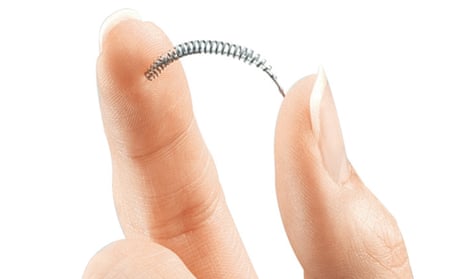It began with an orange bag and ended in health authorities around the world pledging to look at the way medical devices are regulated. The Implant Files investigation we were involved with has taken months of work but has already had an impact which will, we hope, last long into the future.
Since spring we have been exploring the world of medical devices, working as part of an international team coordinated by the International Consortium of Investigative Journalists (ICIJ). We have ploughed through pages and pages of court documents and data released through freedom of information requests, spoken to surgeons and specialists around the world, and heard – often heartbreaking - stories from those who have suffered when things have gone wrong.
The project was the latest in a long line of collaborations that the Guardian has worked on with ICIJ, a group that brings together media organisations around the world. This time more than 250 journalists from 58 news organisations were involved, including the BBC and the British Medical Journal (BMJ) in this country, and Le Monde, Canada’s Toronto Star and the Associated Press in America.
Unlike the most recent ICIJ investigations, the Implant Files did not involve a leak of information – instead it started with a pitch from a Dutch journalist, Jet Schouten, who four years ago made a documentary revealing how easy it was to get a medical device approved. Armed with an empty mandarin net from a supermarket and a file of made-up data, she was able to impress the organisations that approve devices almost to the point of gaining approval to sell the net as vaginal mesh.
Following the Guardian’s award-winning stories about the problems caused by mesh, joining in with the collaboration was an easy decision. Those stories had exposed some of the problems with the system, and this gave the chance to look at the wider industry.
Working as part of an international team allowed us to follow stories across borders. Thousands of documents released to our French partners at Le Monde revealed how the industry had lobbied against forthcoming changes designed to toughen up the rules across Europe. Analysis of data from the US regulator, which included manufacturers’ reports, allowed us to see what devices were causing the most problems around the world.
Reporters across the world were interested in problems with breast implants and we had regular conference calls to exchange information. We heard of the scale of the problem, of research papers and investigations by clinicians in other countries, and of the way regulators were responding to concerns. And we shared what we had learned from experts and patients in this country.
Some aspects of the investigation were less straightforward – although the medical devices industry is global, with many of the makers huge companies sending products into many different countries, there are quirks. In the UK we were unable to uncover figures that were available to colleagues in other countries. Different products are popular in different places, so some of things of great interest to other partners were not things we chose to cover from the UK.
As UK reporters we have been shocked by the lack of transparency. FOIs have been turned down on the basis of commercial confidentiality, requests to press offices for details of how devices were approved or why approval had been withdrawn have met with similar responses. The NHS’s labyrinthine structure has made it impossible to get facts and figures about the cost of clearing up once a device has gone wrong.
Luckily, what we were able to get out of regulators was turned into something meaningful by the Guardian’s data editor, Caelainn Barr, who worked with us on the project. We were able to publish new figures showing the large number of reports being sent to the UK’s health watchdog, and what the most common issues were.
Reporting patients’ experience was key, and we are indebted to everyone who told us their stories. Since we wrote, more than 240 people have responded to a call-out, telling us of their experiences with faulty devices. Some of the stories are heartbreaking; many involve years of pain and struggles to get problems put right.
Throughout the investigation we dug into the evidence behind claims made by device companies, doctors and patients. We did not want to cause unjustified alarm among our readers, and so carefully chose the devices we focused on and did everything we could to make sure our reporting was measured and responsible.
As we counted down to the day when the first stories were going to go live, there was a big announcement from the US regulator. On the Friday before we published, and following weeks of questions from the ICIJ and partners, the FDA said it would be overhauling its approval process. It said it had planned the change for some time.
After we went live in Canada, our partners at the Toronto Star were able to proclaim an “implants crackdown” on their front page, after the country’s health minister asked its regulator to speed up improvements. In Germany, our partners at Süddeutsche Zeitung won a promise from the country’s health minister that the government would set up a new register of all implanted devices.
Researching the problems with medical devices is not for the squeamish. Some of the photos we’ve seen and descriptions we have read and heard have made us shudder. But more shocking was how hard it is to get information about the industry – not just as a patient, but as a journalist too. The investigation has led to the creation of the International Medical Devices Database, hosted by the ICIJ, which we hope will prove a small step towards patients being able to make informed, evidence-based decisions about treatment. We also hope that by continuing to tell these stories we will help keep up the pressure for more transparency and better access to data for everyone.
